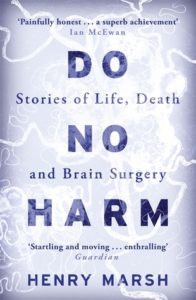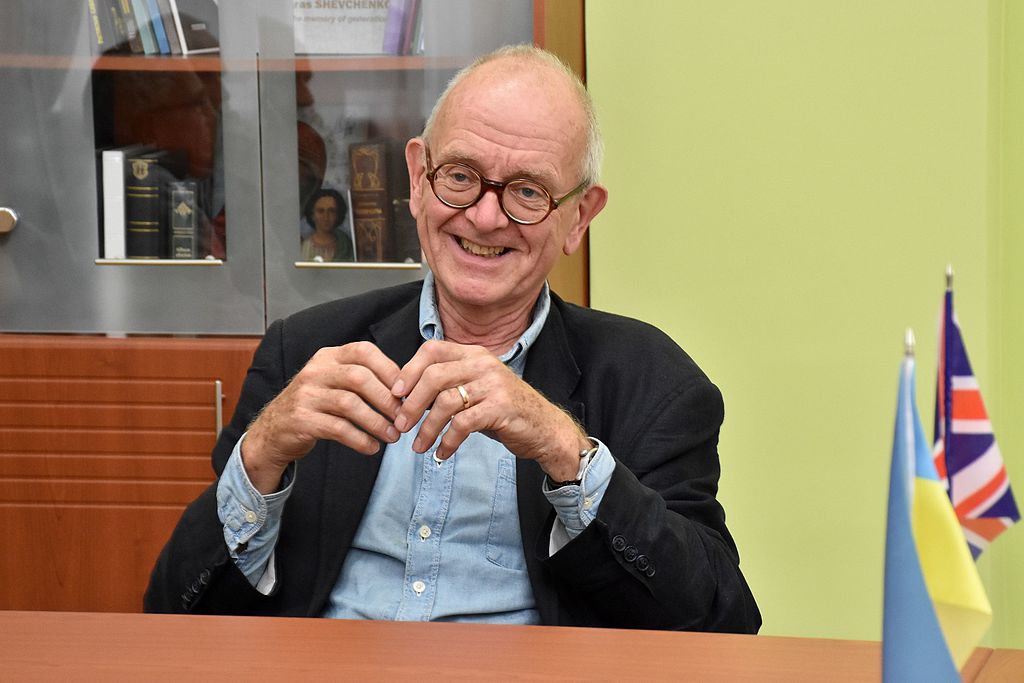Neurosurgeons are often faced with thorny decisions. Although surgeries are usually meticulously calculated, there will always be latent risks and dangers. Once in the brain, doctors explore an organ that still presents them with great mysteries. The “scalpel men” look meticulously through a state-of-the-art microscope and make use of long-handled, fine-tipped instruments to repair the brain. While intervening, they must be especially careful, because if any vein or artery is torn it can cause unsalvageable damage. In this profession, there are days when lives are saved and hope is exalted, but there are also days when death wins and the promise of the future is broken. Unlike many professions, those in neurosurgery carry within them a small, unwitting graveyard: so says Dr. Henry Marsh in his acclaimed book Do No Harm: Stories of Life, Death and Brain Surgery.

Nearing retirement, the eminent British neurosurgeon has decided to give a first-person account of his long clinical experience. In Do No Harm: Stories of Life, Death and Brain Surgery, Dr. Henry Marsh offers a penetrating and direct look at the life of a modern neurosurgeon. The author succeeds in bringing readers into the day-to-day life of his specialty, exposing the essence, the challenges, and the foibles of the craft. Three decades of neurosurgical memories are brilliantly captured in this text.
The book Do No Harm, (a title taken from the supreme principle of medicine, attributed to Hippocrates), reveals “the heart of a surgeon”, on whose hands depend the pain, life and death of his patients. In his account, Dr. Marsh describes the main medical episodes that marked his life as a neurosurgeon and as a human being. In this sense, he narrates from the moment he discovered his vocation (after witnessing a brain aneurysm operation), to the day he undertook his last bicycle ride to St George’s Hospital.
After thirty years of fighting against death, the author shares the daily aspects of the profession: the desire to help, medical meetings, crucial conversations with patients, clinical setbacks, moral conflicts in the face of discouraging diagnoses, encounters with anguished relatives, the bureaucratic nightmare and administrative frustrations. In short, the veteran Brit offers experiences, lessons, anecdotes and all kinds of career details. Sensitive, intricate, and sometimes catastrophic clinical cases stand out.
Henry Marsh’s publication bears little resemblance to television series focused on medicine, in which melodrama and cases of exceptional rarity predominate. After treating some 15,000 patients, Marsh reviews his clinical career as if he were subjecting himself to an examination of conscience. In his memoirs, he reflects on the intricacies of his profession and admits with special frankness a list of professional mistakes that embarrass him, make him feel ashamed and deeply hurt.
“Psychological research has shown that the most reliable route to personal happiness is to make others happy. I have made many patients very happy with successful operations, but there have been many terrible failures and most neurosurgeons lives are punctuated by periods of deep despair,” he comments in a revealing passage.
Like all people, Henry Marsh has made mistakes and learned invaluable lessons from them. What happens in his case is that as a neurosurgeon, his mistakes have cost lives and caused a lot of pain. “It’s not the successes I remember,” Marsh writes, “but the failures”. The doctor and professor confesses that he has written this text in the hope that new generations will not have to repeat the mistakes he made.
Regarding human errors, Marsh ruefully admits that “one of the painful truths about neurosurgery that you only get good at doing the really difficult cases if you get lots of practice, but that means making lots of mistakes at first and leaving a trail of injured patients behind you”. While this is a terrible truth to accept, it is also inescapable. Skill, expertise, and competence only come through trial and error.
Do No Harm: Stories of Life, Death and Brain Surgery consists of 25 chapters, each of which revolves around a specific neurological condition. It is noteworthy that the author offers enlightening clinical vignettes that allow the reader to get a frank idea of the diagnosis and prognosis. In each case, a life story is presented, full of faces, names, family members and expectations of a future that may or may not come. As might be expected, at times miraculous cures are celebrated, at others, unspeakable disasters are lamented.
Throughout the book there are countless highlights as Dr. Henry Marsh focuses on the decisive episodes of his career. In this regard, the author does not hesitate to reflect on the irremediable consequences he generated in some of his patients. For example, he relates the story of a man with an exceptionally large petroclival meningioma. After fifteen hours of surgery, Marsh had skillfully removed most of the tumor without damaging the cranial nerves. However, the surgeon decided to take a greater risk and attempted to remove the most deeply rooted part. Unfortunately, the patient would never wake up again and would remain in a nursing home for 7 years.
A particularly heartbreaking story is the case of a Ukrainian girl named Tanya, who had a huge tumor at the base of her brain. Dr. Marsh says he always felt a deep uncertainty about whether or not to operate on her. To tell the truth, the case was challenging and the prognosis bleak. Henry Marsh was once again at a heavy crossroads: perform a highly dangerous intervention or let a tumor eventually end the life of an eleven-year-old patient.
Ultimately, he decides to proceed with the operation, clinging to a distant hope. Unfortunately, Tanya suffers a severe stroke and her life is terribly affected. The girl dies eighteen months later and Marsh relives this loss from his gut.
By sharing these stories, Dr. Marsh does his best to admit uncomfortable truths and to raise awareness about the limitations of surgery and the failures of specialists. His main mission is to draw meaningful lessons that contribute to the betterment of practitioners.
Despite what one might think at first glance, Do No Harm: Stories of Life, Death and Brain Surgery is not a book aimed at undermining or ruining people’s confidence in surgeons. Nothing could be further from the truth. The author’s purpose is to dispel myths about “the demigods of the scalpel”, or “the super-gifted specialists”, and to contribute to a more realistic and humane culture in the profession. He seeks to dismantle the collective illusion that neurosurgery is an infallible discipline in the hands of men with a perfect pulse. As obvious as this may seem, it is often forgotten.
The veteran surgeon implies that every healthcare professional has the lofty mission of caring for and honoring their patients – to Do No Harm – however, no matter how hard the surgeon tries, they cannot prolong treatments indefinitely, nor can they postpone death forever.
Do No Harm: Stories of Life, Death and Brain Surgery was named “Best Book of the Year” by the Financial Times and The Economist, and won the PEN Ackerley and South Bank Sky Arts Awards.
Image: Mykola Vasylechko

